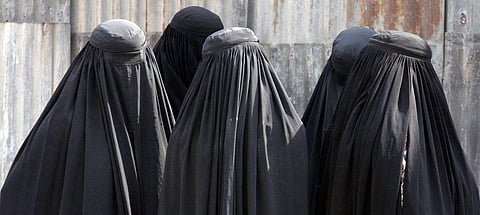

Muslim groups in Kerala have been outraging over the fact that one of their larger minority education groups — the Muslim Educational Society which runs over 150 institutions of various kinds — has decided to ban students from covering their faces while in school or college from next year. The group has attributed this rather strange step to a ruling made by the Kerala High Court.
Except, the Kerala High Court never did actually say anything of that sort.
In his ruling, made on December 4, 2018, Justice A Muhamed Mustaque, ruled that it was the right of the school to enforce any manner of uniform that it deemed fit and that the religious rights of a few could not be held to be above that. Nowhere in the entire judgement does the judge mention the banning or enforcement of any kind of clothing style.
He said, "It is for the institution to decide whether the petitioners can be permitted to attend the classes with the headscarf and full sleeve shirt. It is purely within the domain of the institution to decide on the same. The Court cannot even direct the institution to consider such a request." Essentially, if a Muslim minority body like MES wished to have their own code of uniform that involved the wearing of a headscarf, veil and burqa, that would be considered well within their right.
Hearing a writ petition filed by two Muslim girls — Fathima Thasneem and Hafzah Parveen, students of the Catholic-run Christ Nagar Higher Secondary School in Thiruvananthapuram, who objected to the school's imposition of a uniform that did not allow them to wear long sleeves and cover their faces with a veil — Justice Mustaque agreed that both the students and the school had a constitutional and fundamental right to their viewpoint.
He further observed that while one is not more important than the other, allowing an individual's rights to supercede that of an institution would lead to chaos, "If the management is not given free hand to administer and manage the institution that would denude their fundamental right. The Constitutional right is not intended to protect one right by annihilating the rights of others. However, when there is a priority of interest, individual interest must yield to the larger interest. That is the essence of liberty," he noted.
